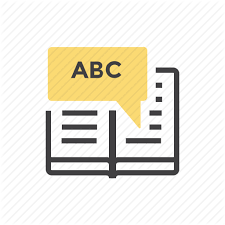Features of foreign language education
Abstract
This article discusses current issues of learning foreign languages. It also proposes ways to use advanced technologies in the study of foreign languages.
References
Zhalolov Yu.J. Methods of teaching foreign languages: A textbook for students of faculties of foreign languages (faculties). - Tashkent: Teacher, 2012. - 432 p.
The concept of unprecedented access to the newspaper // The newspaper "Teacher of Uzbekistan". -1993. July 28 - August 3. - pp. 2-3.
Why do you need multiline? Warum Mehrsprachigkeit? -T., 2017.
Mustafayeva Kh.T. Lingvhoto-photodynamic features of teaching English grammar to students of social and humanitarian faculties: ped. the science. title. ... dis. - Samarkand, 2003. - 139 p.
Yerkayev E.T. Linguodidactic classification of translation exercises used in future education for teachers of foreign languages: ped. the science. title. ... dis. books. Tashkent, 2008. - 23 p.
Sharapova S.I. Methodology of teaching students of a non-linguistic university of reading professional texts with sometimes-various forms of secondary utterances (German). Author's abstract Nizin ... Cand. PED. The scien

In submitting the manuscript to the International Journal on Integrated Education (IJIE), the authors certify that:
- They are authorized by their co-authors to enter into these arrangements.
- The work described has not been formally published before, except in the form of an abstract or as part of a published lecture, review, thesis, or overlay journal.
- That it is not under consideration for publication elsewhere,
- The publication has been approved by the author(s) and by responsible authorities – tacitly or explicitly – of the institutes where the work has been carried out.
- They secure the right to reproduce any material that has already been published or copyrighted elsewhere.
- They agree to the following license and copyright agreement.
License and Copyright Agreement
Authors who publish with International Journal on Integrated Education (IJIE) agree to the following terms:
Authors retain copyright and grant the International Journal on Integrated Education (IJIE) right of first publication with the work simultaneously licensed under Creative Commons Attribution License (CC BY 4.0) that allows others to share the work with an acknowledgment of the work's authorship and initial publication in this journal.





1.png)
